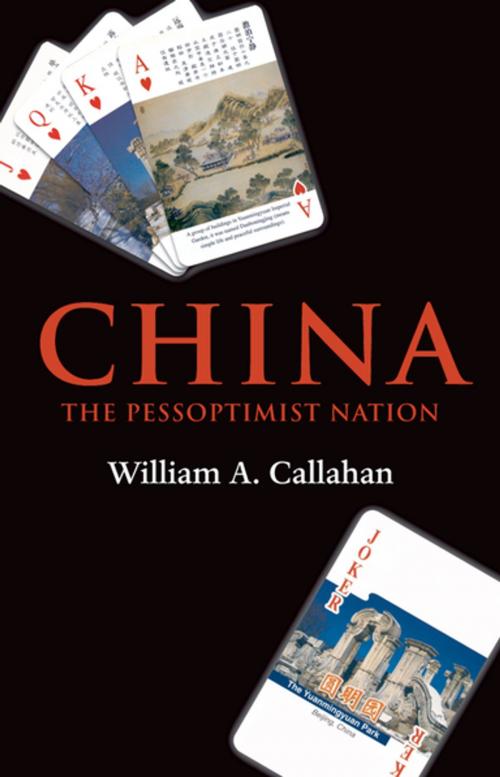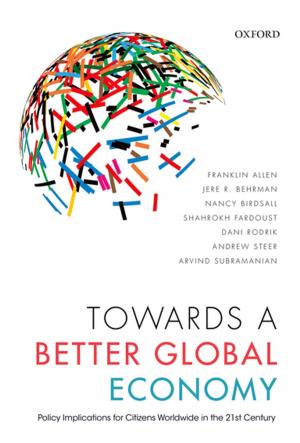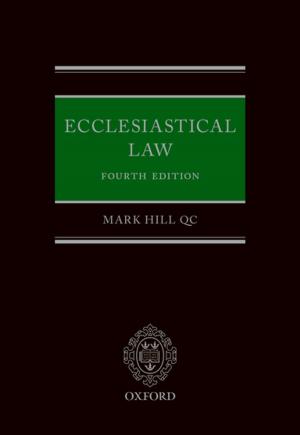China
The Pessoptimist Nation
Nonfiction, History, Asian, China, Social & Cultural Studies, Political Science, Social Science| Author: | William A. Callahan | ISBN: | 9780191609503 |
| Publisher: | OUP Oxford | Publication: | November 19, 2009 |
| Imprint: | OUP Oxford | Language: | English |
| Author: | William A. Callahan |
| ISBN: | 9780191609503 |
| Publisher: | OUP Oxford |
| Publication: | November 19, 2009 |
| Imprint: | OUP Oxford |
| Language: | English |
The rise of China presents a long-term challenge to the world not only economically, but politically and culturally. Callahan meets this challenge in China: The Pessoptimist Nation by using new Chinese sources and innovative analysis to see how Chinese people understand their new place in the world. To chart the trajectory of its rise, the book shifts from examining China's national interests to exploring its national aesthetic. Rather than answering the standard social science question "what is China?" with statistics of economic and military power, this book asks "when, where, and who is China?" to explore the soft power dynamics of China's identity politics. China: The Pessoptimist Nation shows how the heart of Chinese foreign policy is not a security dilemma, but an identity dilemma. Through careful analysis, Callahan charts how Chinese identity emerges through the interplay of positive and negative feelings in a dynamic that intertwines China's domestic and international politics. China thus is the pessoptimist nation where national security is closely linked to nationalist insecurities. Callahan concludes that this interactive view of China's pessoptimist identity means that we need to rethink the role of the state and public opinion in Beijing's foreign policy-making.
The rise of China presents a long-term challenge to the world not only economically, but politically and culturally. Callahan meets this challenge in China: The Pessoptimist Nation by using new Chinese sources and innovative analysis to see how Chinese people understand their new place in the world. To chart the trajectory of its rise, the book shifts from examining China's national interests to exploring its national aesthetic. Rather than answering the standard social science question "what is China?" with statistics of economic and military power, this book asks "when, where, and who is China?" to explore the soft power dynamics of China's identity politics. China: The Pessoptimist Nation shows how the heart of Chinese foreign policy is not a security dilemma, but an identity dilemma. Through careful analysis, Callahan charts how Chinese identity emerges through the interplay of positive and negative feelings in a dynamic that intertwines China's domestic and international politics. China thus is the pessoptimist nation where national security is closely linked to nationalist insecurities. Callahan concludes that this interactive view of China's pessoptimist identity means that we need to rethink the role of the state and public opinion in Beijing's foreign policy-making.















